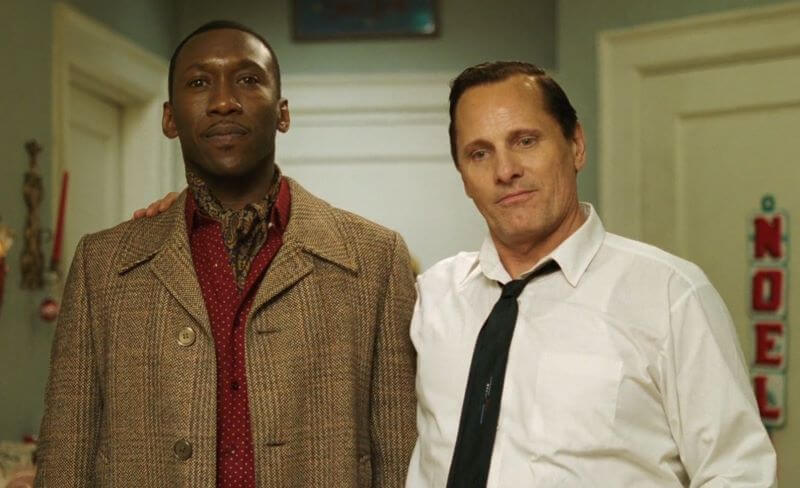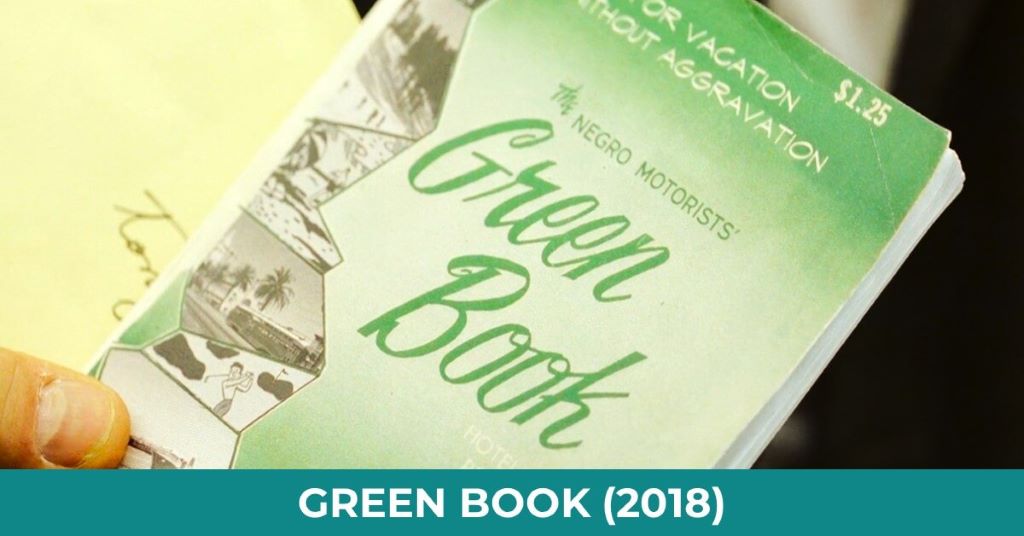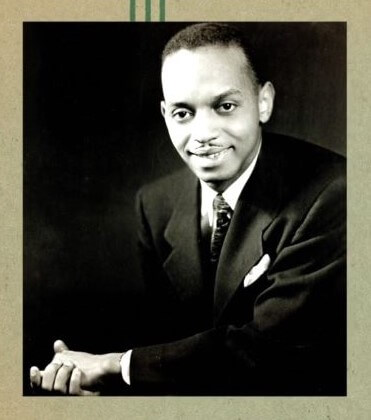Last updated on November 18th, 2023 at 11:41 pm
The 2018 film Green Book is a biographical comedy-drama based on a true story and is set in the 1960s in the United States. The story is based on the friendship between Tony Lip Vallelonga, an Italian-American bouncer from the Bronx of New York and a renowned African-American musician Dr Donald Shirley, whom Vallelonga in 1962 chauffeured through the Deep South—Pittsburgh, Ohio, Hanover, Iowa, Kentucky, North Carolina, Tennessee and Alabama for his musical concerts.
Through their journey together, the film challenges our perceptions of racism and discrimination, highlighting the power of empathy, compassion, and friendship in overcoming deep-rooted racial prejudices.
The Green Book represents the life of Dr Donald Shirley, African- American classic pianist of the period of segregation. The film shows represents how people are divided by the fact of racism. It shows how racial hatred and discrimination based on the colour of our skin dehumanise our humanness to the core. But rising above the racial preference Lip and Shirly become each other’s friends till their death.
As To Kill a Mockingbird talks about atrocities of white supremacists, Gone With The Wind is about the lives of blacks and whites during the Civil War, Do the Right Thing is about complexion-based racism, Schindler’s List about religious hatred, Green Book presents us the new reality of racism, previously unknown one at that. Directed by Peter Farrelly and starring Viggo Mortensen and Mahershala Ali, Green Book won three Oscars in 2019 as a Best Picture and one of 101 best films of 100 years on my list to review.
Background
Green Book 2018 is based on the guidebook “The Negro Motorist’s Green Book” which enlists tourist homes, barbershops, beauty parlours, and various other places that are willing to accommodate Negroes while they are on travel. It also lists places like this one that are not permitted to black people during the period of segregation that lasted till 1965 starting from the late 19th century. In the USA this segregation implied to social and legal segregation of races, especially African-Americans from the whites or Yankees.
According to Encyclopaedia Britannica, racial segregation is the practice of restricting people to certain circumscribed areas of residence or to separate institutions (e.g., schools, churches) and facilities (parks, playgrounds, restaurants, restrooms) on the basis of race or alleged race,” which has two forms e.g. de jure and de facto segregations.
De jure segregation is a lawful segregation which was outlawed during the Civil War Act in 1964. But de facto, exits in reality but not permitted by the law, segregation still exist, not only in the USA but around the world, I would say.
Green Book Synopsis
Without having a higher education Lip with Italian ancestry worked as a bouncer in a restaurant, Copa. but as bad luck had it, he went was out of work for two months as the joint went into renovation after a brawl. it was then he was called to be employed by Dr Shirley, an African-American pianist who wanted to change people’s minds about racism through music and non-violence actions. Though was a strong opponent of black people, over the journey his perception towards black people changed by the benevolent action of Shirly.
At the start of the film, Tony Lip is struggling to find work, and when he is offered the job of driving Dr. Shirley, he takes it for 125 $ plus expenses despite the fact that he will have to leave his family for two months despite, and initial conditions of him being a butler cum chauffeur. Being a cultured and educated man Dr. Shirley was very much concerned about honesty and integrity which troubled Lip during their journey.
Tony Lip and Dr. Shirley clash due to their vastly different backgrounds and personalities. One day Lip was forced to drive the car back to pick the empty paper cup that he threw from the street. Dr. Shirley taught him to write letters to his wife. However, as they continue their tour, they gradually begin to bond and develop a deep friendship, despite the many challenges they face along the way.
Throughout their journey, Tony Lip and Dr. Shirley met with numerous occurrences of racial discrimination and prejudice, including being refused service at restaurants and hotels, and even being arrested for a minor traffic violation.
At the end of their tour, Tony Lip and Dr. Shirley part ways. But the film ends with an epilogue that reveals the lifelong friendship that developed between the two men, and the impact of their friendship.
Racism, how far can it go?
During the last FIFA World Cup, I watched the match between France and Argentina last year. During the match, I heard some of the football enthusiasts from among us supporting Argentina calling names and hurling abusive words at the black players. The incident was so discriminatory and unacceptable that it kept taunting me for a few months for being part of the crowd.
However, it is just one of the many incidents that took place during the game. Somewhere the viewers were divided between the racist line of Muslims and Christians while a big chunk of Muslims in Bangladesh supported only Muslim nations and cursing the opponents.
Racism has played a role in genocides such as the Armenian genocide, the Holocaust, the Rwandan genocide, and the Genocide of Serbs in the Independent State of Croatia, as well as colonial projects including the European colonization of the Americas, Africa, Asia, and the population transfer in the Soviet Union including expulsions of aboriginal minorities. Indigenous peoples have been often subject to racist attitudes.
You never know what’s going to happen on the road. It’s either feast or famine.
Tony Lip, Green Book 2018
In fact, the war of independence of Bangladesh took place based mostly on racial, economic and linguistic discrimination. I think almost all human fatalities and tragedies can be rooted in some kind of discrimination.
The same thing happens during the cricket match. The Hindu-Muslim, Asian, and non-Asian dividing line and opinion get pierced as some Muslims strongly support the Muslim nations and hurl profane statements towards Indian players. This is what exactly happened in the field during a match between South Africa and Pakistan in 2019 in Durban.
Sharfraz, the Pakistan batsman made the racist remark at Pehlukwayo in Urdu. The Hindustan Time takes it, “Abey kaale, teri ammi aaj kahaan baitheen hain? Kya parwa ke aaye hai aaj (Hey black guy, where’s your mother sitting today? What have you got her to say for you today)? The Guardian reported that 14 % of professional cricketers experience racism.
Sadly, de facto discrimination is about everywhere. Decimations based on clothes, education, casts, tribes, nationality, looks, race and skill are not unknown to people. In Bangladesh, the people from the Harijan tribe are not allowed to enter mainstream establishments. Some shops do not sell them the commodities, restaurants do not allow the in.
Muslim consider them unholy or untouchable. In fact, to some Muslims, all non-Muslims are unholy and doomed for the fire of hell. Muslims call Bengali Hindus “malaun”, derived from Arabic to mean “accursed” or “deprived of God’s mercy”. Like Hitler, they entertain the same thought that Jews are the enemies of God and they have ceased the right to exist.
In India, the picture caste-based discrimination is even worse. The Dalits and low cast people are ever subject to various forms of discrimination. In the Indian subcontinent and in the Middle East females are considered inferior beings, their rights to choose and speech are violated everywhere. Female children are still considered a burden by many Hindu and Muslim families.
Ideologically, intellectually, linguistically and politically different people are still subjected to racism and discrimination. Asian Muslims hold that English is the language of Christians, Bengali is the language of Hindus while Arabic is the chosen language of God. Intellectually progressive, liberal and open-minded people are considered to be threats to religions and it is permissible in some religions to kill them.
Nonetheless, discriminations are still among us in form of economic, institutional, cultural, colour blindness, otherness and national and religious supremacism. To my surprise, in most of the top public universities in Bangladesh students from different religious backgrounds are accommodated in separate residential halls.

What to Consider
Green Book is a critically applauded film for being not only an entertaining and well-crafted piece of cinema but also for being culturally and historically significant that sheds light on issues of race, identity, and the struggle for civil rights in the United State.
Dr. Shirley, a talented pianist, faces constant prejudice and harassment as he performs in venues where African-Americans are not welcome, and Tony Vallelonga, a tough bouncer, must confront his own prejudices and biases as he becomes Don’s driver and protector.
You never win with violence. You only win when you maintain your dignity. Dignity always prevails.
Dr Don Shirley, Green Book 2018
Dr. Shirley met with bouts of racism in every city he went to. In Louisville, he had to stay in a ‘coloured-only” hotel and was attacked in a white bar. In Kentucky, he was offered to use a separate toilet for black people outside the establishment. Instead of using that he, had to go back to his motel and came back to the show. In Macon, Georgia he was not allowed to try a suit in a shop and was arrested with a white man for which Tony bailed him out by bribing the police.
It takes courage to change people’s hearts.
Dr Don Shirley, Green Book 2018
in Mississippi Lip and Don were taken to the police station when Lip hit one of the traffic police. Lip hit him because he called him a half-black for driving for Shirly. When Shirly asked for the reason why he was arrested one of the police officers said, ’cause you let the sun down on your black ass’. Dr. Shirley had to ask for US Attorney General Bobby Kennedy’s intervention on the matter, was known for his advocacy of civil rights and was the younger brother of President John F. Kennedy.
During the Christmas concert, Dr. Shirley was given a store room to stay, in Birmingham, Alabama. He was to not permitted to dine in the restaurant of the establishment where he went to play the piano. Shirly told that either he is going to eat there in the restaurant or going to cancel the show. He told to Tony he will play only if he wanted him to, but he did not want. Instead of playing they cancelled the show and headed home amid heavy snow.
Moreover, as a lover of educative films, I have been fascinated by the endurance of Lip in swallowing the disciplinary advice of Dr. Shirley, and Dr. Shirley’s insistence on injecting his moral values into Lip. After resealing from police custody Dr. Shirley revealed to Lip, “You never win with violence, Tony. You only win when you maintain your dignity. Dignity always prevails.” Like Mahatma Gandhi, he refused to resort to violence to change people’s hearts.
To question of Lip why Dr. Shirley was going around shamelessly to white establishments where blacks were not welcomed, Oleg, the celloist of the trio once revealed, “because genius is not enough. It takes courage to change people’s hearts.” Dr. Shirley always believed in that maxim. He was ready to be mistreated in order to change people’s perception towards humanity regarding race.
Tony blamed Dr. Shirley that his life is not blacker than his because he has struggled every day and knows more about black people than he does, while what he does is live in the castle and travel around the world doing converts for the rich people.
Dr. Shirley replied by saying, “Yes, I live in a castle, Tony! Alone. And rich white people pay me to play the piano for them because it makes them feel cultured. But as soon as I step off that stage, I go right back to being just another nigger to them. Because that is their true culture. And I suffer that slight alone because I’m not accepted by my own people ’cause I’m not like them, either. So, if I’m not black enough and if I’m not white enough and if I’m not man enough, then tell me, Tony, what am I?”
Yes, to be accepted in the circles of people we must be enough Asians, Europeans, Muslims, Hindus, Christians, believers, non-believers, bad, good, smart, beautiful and enough everything except enough humans. Not being enough renders to us loneliness. Indifferent, lookalike, like-minded and average people are not lonely and subjects of racism and discrimination, after all. Having said that, we must be in one accord to say no to ANY forms of racism and discrimination to see a liveable world and loveable human community.
Conclusion
In conclusion, The Green Book 2018 film is a masterpiece of cinema that combines artistry, social commentary, and historical significance in a compelling and entertaining package. This film deserves its place in the pantheon of great movies, and its messages of friendship, tolerance, and resistance are as relevant today as they were in the 1960s.
The performances by Viggo Mortensen and Mahershala Ali are also noteworthy, as they both bring depth and subtlety to their characters. Mortensen’s Tony Vallelonga is a lovable rogue with a heart of gold, whose journey of self-discovery and redemption is both touching and inspiring, while Ali’s Dr. Shirley is a proud and enigmatic figure whose struggle for dignity and respect resonates with viewers.

